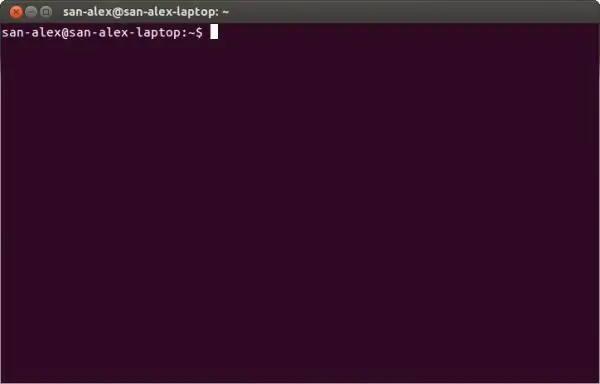
Table of contents:
- Author Bailey Albertson albertson@usefultipsdiy.com.
- Public 2023-12-17 12:53.
- Last modified 2025-01-23 12:41.
How to get rid of Yandex. Browser completely

Yandex. Browser is a worthy replacement for such popular browsers as Google Chrome (and its counterparts based on the Chromium kernel), Mozilla Firefox, Avant Browser, Internet Explorer, Microsoft Edge and Opera. But if something does not suit you, then removing it is not a problem.
Content
- 1 Why delete "Yandex Browser"
-
2 How to remove "Yandex Browser"
-
2.1 Removing Yandex Browser from a Windows PC or tablet
- 2.1.1 Removing Yandex Browser in Windows 7
- 2.1.2 Uninstalling Yandex Browser in Windows 8/10
- 2.1.3 Video: how to remove Yandex Browser in Windows
- 2.2 Removing "Yandex Browser" in MacOS
- 2.3 Removing Yandex Browser in Linux
-
-
3 Unauthorized installation of "Yandex Browser"
- 3.1 Unauthorized installation of programs as a result of virus activity
- 3.2 How to avoid spontaneous installation of programs in Windows
Why uninstall Yandex Browser
Most often, Yandex. Browser is removed because the user is not satisfied with its functionality and appearance, and the innovations that have appeared in it seem unnecessary and even interfere. People who have used Opera or Firefox browsers for 10 years become so used to them that they often do not want to change them to any other. Many people in Yandex. Browser do not like, for example:
- "Zen" rubric - before, they simply bookmarked the necessary sites, and that was enough;
- recently opened tabs - you can enter the history of visiting sites and continue working from the place where it was interrupted.
But there are other possible reasons for the removal of Yandex Browser:
- lack of hard disk space;
- crashes in the browser;
- insufficiently high speed of work.
How to remove Yandex. Browser
Yandex. Browser has versions for Windows, MacOS and Linux. Consider the procedure for removing it in each of these OS.
Removing Yandex Browser from a Windows PC or Tablet
In different versions of Windows, Yandex. Browser is removed in the same way, with minor differences.
Removing Yandex Browser in Windows 7
Usually, an uninstaller is supplied with any program - the Uninstall.exe file, which removes the program, its settings and auxiliary files from the computer. The uninstaller can be launched from the Windows Application Manager or directly by the user.
Removing Yandex Browser in Windows 7 is done as follows:
-
Click the "Start" button and select "Control Panel".

Logging into the Windows 7 Control Panel To enter the control panel, click on the corresponding line in the Start menu
-
From the Programs submenu, select Uninstall Programs.

Logging into the Windows 7 Uninstall Console Clicking on the "Programs" button, go to the list of installed applications
-
Select the Yandex program (developed by Yandex).

Go to uninstall "Yandex Browser" in Windows 7 Yandex Browser is easy to find in the list of programs by the icon with the original logo
-
Click the "Remove" button (above the list of applications) and confirm the request to remove Yandex Browser. If you do not want to return to it anymore, check the "Also delete settings and data" item.

Confirmation of removal of "Yandex-Browser" in Windows 7 Confirm the removal of Yandex Browser by clicking the Delete button in the dialog box that appears
Yandex Browser will be removed.
Removing Yandex. Browser in Windows 8/10
On Windows 8.1 and 10, do the following:
-
Click on the "Start" button, and then on the image of the gear ("Options").

Logging into Windows 10 General Settings Settings Console in Windows 10 replaces Control Panel in Windows 7
-
In the settings window that opens, click the "Applications" icon.

Move to program management in Windows 10 Go to the list of already installed applications
-
Click on the horizontal tab "Applications and features" (you do not need to go to other tabs) and in the list of programs select "Yandex Browser" (Yandex program).

List of installed programs in Windows 10 Find and mark "Yandex Browser" in the list of installed applications
- Confirm the removal of Yandex Browser by clicking the Remove button.
Yandex Browser will be removed.
Video: how to remove Yandex. Browser in Windows
Removing Yandex Browser on MacOS
On MacBook computers, Yandex Browser is even easier to remove.
- Exit the Yandex Browser program by closing all its windows and tabs.
-
Open the MacOS Explorer - the Finder application (literally - the file search engine of the Mac operating system) by clicking on the "smiley" in the display panel of the MacOS desktop.

Sign in to the Finder on Mac Finder is similar in functionality to Windows Explorer
-
Enter the command "Go - Programs" or press the key combination Shift - cmd - A.

Menu for switching to actions on the data and programs library MacOS navigates to the list of installed programs differently than Windows
-
Drag the Yandex application icon to the trash (drag and drop as in Windows). The system folder "Trash" is at the bottom of the screen.

Moving the program to the MacOS trash bin The list of installed applications should contain the Yandex Browser icon
-
Enter the command "Empty Trash".

Emptying Trash on MacOS Enter the command to empty the Mac Trash
If the Yandex Browser application has created an icon on the Mac desktop, you can immediately uninstall the browser without going to the Finder file search engine. To do this, simply drag the application icon to the trash can.
Removing Yandex Browser in Linux
Consider the Ubuntu version as an example. To remove the browser from Yandex, use the Terminal program. Depending on the Linux version, it is either located in the "Applications - Standard" category, or called by the "Main Menu - System" command.

The terminal startup process may differ in different Linux versions.
After starting the terminal, a command console window opens.

Enter and execute the commands required to remove Yandex. Browser
The process of removing Yandex Browser itself consists of three steps. Run the following commands:
- Delete the Yandex repository from the system using the command sudo rm /etc/apt/sources.list.d/yandex-browser-beta.list*.
- Also remove Yandex. Browser itself using the sudo apt remove yandex-browser-beta command.
- Remove browser preferences and history by entering rm -r ~ /.config / yandex-browser *.
As a result, the files unpacked earlier during the installation of Yandex Browser from the DEB installation package will be completely deleted.
Unauthorized installation of "Yandex Browser"
Sometimes it happens that applications suddenly appear on the PC, as if by themselves, without any action on the part of the user. Among them may be the previously deleted Yandex Browser. How does this happen?
During normal operation of any Yandex. Browser OS, it cannot spontaneously appear on a computer, since neither Windows, nor Linux or MacOS install any programs without the user's consent. But this happens as a result of viruses.
Unauthorized installation of programs as a result of virus activity
Windows is the least secure popular OS. Viruses embedded in it can arrange anything, including self-installation of any applications. The sources of viruses are, first of all, unverified sites, including those caught by search engines and by means of protection of Windows itself in phishing (phishing sites are clones of the most popular web resources that collect user logins and passwords). Fortunately, antivirus programs and the most common browsers provide fairly strong protection against such sites.

Never go to the site if you see such a warning
Linux and MacOS are less susceptible to infection by viruses, but you need to be careful with them and do not forget about precautions.
How to avoid spontaneous installation of programs in Windows
To do this, you need to follow these simple recommendations:
- Never visit questionable sites.
-
Use any of the popular antiviruses (Kaspersky package, Panda, Avast, 360 Total Security, NOD32 or another), and be sure to enable online protection against malicious sites.

Configuring Kaspersky Anti-Virus settings Be sure to enable Web Anti-Virus
- Don't give up on Windows Defender (a Windows Defender component included in the standard Windows build) and keep its database up to date. The work of Windows Defender complements well the actions of all of the above antiviruses.
- Download and install the latest updates and fixes for Windows 8.1 / 10 on time.
- If the performance and responsiveness of your PC or laptop allow - go to Windows 10. The latest update is 1709 Fall Creators Update, use it.
The above measures will help, among other things, to protect against spontaneous installations of programs, including Yandex Browser, and also to avoid surprises with previously installed Windows applications.
Removing Yandex Browser, like any application, is very easy. Moreover, together with the browser, you can delete all its settings, as a result of which there will be no traces of it on your PC or mobile device.
Recommended:
How To Remove Chewing Gum From Clothes, Remove It From Various Fabrics, Shoe Soles, Sofa, Carpet, Car Interior And Other Items + Photos And Videos

How to easily and efficiently remove gum from clothes. What to do if chewing gum sticks to the floor, shoes or hair: recipes, tips, tricks
How To Remove Hair Dye From Clothes, Remove It From Furniture And Other Items + Photos And Videos

How to chemically remove hair dye stains from fabrics, leather goods, carpets, hard surfaces, and wallpaper
How To Remove Yellow Spots From Underarm Sweat On Clothes (white And Other Colors), How To Remove Traces Of Deodorant + Photos And Videos

How to remove yellow sweat and deodorant marks from underarms. Different ways to help remove or remove underarm stains on clothes made from different fabrics
How To Get Rid Of The Smell Of Cat Urine On The Carpet At Home, How To Remove Stains, Remove Traces Of Marks, Remove Unpleasant Odors

Why cat urine smells harsh What to do if the cat wrote on the carpet. How to find and remove old stains. Folk and commercial odor removers
Windows 10 Lock Screen - How To Enable Or Disable, Remove Completely And Perform Other Actions

How to customize the lock screen in Windows 10: turn it on and off, change the picture, add apps. Possible setup problems and solutions
